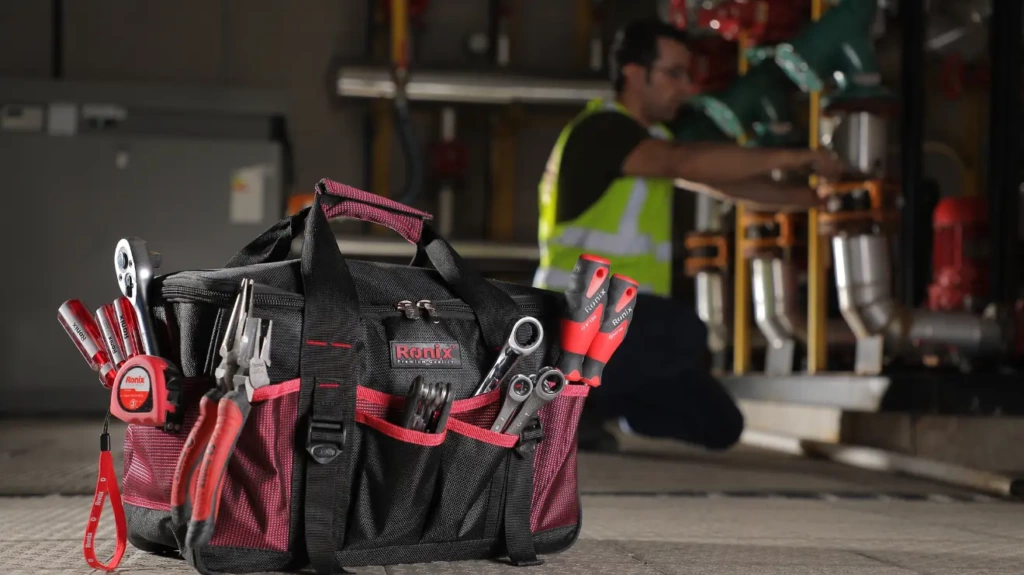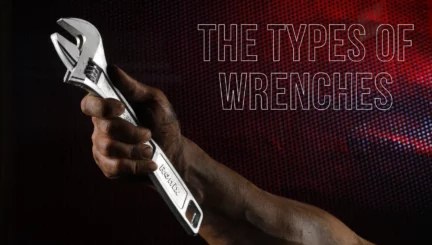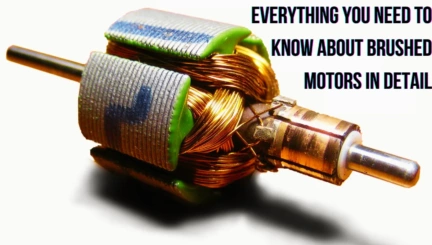- 12min
- 11733
- 0
The air conditioner has stopped working, dirty closed are piled up in the broken washing machine, power tools are malfunctioning, the sink is leaking, screws are scattered around and the furniture start to fall apart, one by one. Horrifying right? This is just a vision of an apocalypse that would happen in the absence of hand tools!
These underrated superheroes are essential for control, precision and accuracy in various daily tasks. Whether you are a DIYer or professional carpenter or engineer, with the use of hand tools like pliers, screwdrivers, wrenches and hammers, you cantake care of different stuff in a more effective and efficient way.
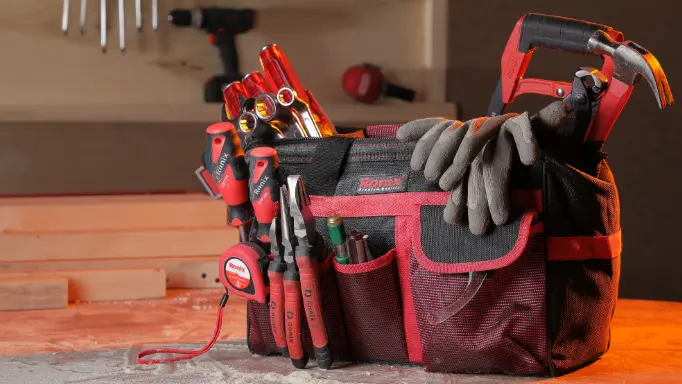
hand tools uses are as vast and diverse as their variety. They can be used for fastening, shaping, measuring, cutting and much more in fields like home repair and maintenance, construction, woodworking, metalworking, electrical work and even jewelry making.
You can use power tools to solve any problem but with the use of hand tools you can always enjoy a more versatile, cost effective and easier to use alternative.
let’s see how hand tools can give you a hand!
Hand Tools and Their Uses

Invest in premium bulk hand tools to win customers over
As indispensable part of any modern toolbox, hand tools have a history as long as the human civilization. We first developed them to survive and tackle difficult and even impossible tasks. The modern models are the evolving heritage of our ancestors that keep changing day by day.
The earliest hand tools were sharp stones used to hammer and cut various materials during the Stone Age. In the Bronze Age, casting the copper and tin alloy was the primary way of making hand tools. These bronze tools had greater sharpness and were stronger than their stone predecessors. During the Iron Age, iron tools replaced the bronze ones, because they were stronger and provided more durability.

The most similar tools to our modern hand tools were made by Romans. They were practical tools which could be used for various applications but still made by hand. When the Industrial Revolution happened, just like many other goods, manufacturing of tools transitioned from being made by craftsmen to being produced in factories.
The basic tools that once helped us hunt and build shelters, have now evolved into more advanced instruments for more complex tasks.

Let’s dive deeper and explore different hand tools and their uses in different industries:
Metalworking
Metalworking requires lots of tools and equipment. As metal seems hard and impenetrable, you might come to believe that metalworkers tool arsenals are only filled with power tools such as angle grinders and welding machines. But it not true! To properly shape metal, they also need a handful of hand tools.

A hammer is one of the most commonly used hand tools in metalworking. Even if you haven’t visited a blacksmithing shop yourself, you’ve probably seen one in action on TV. Blacksmiths rely on hammers to shape intensely hot pieces of metal, adjusting their thickness through precise hammering strokes.
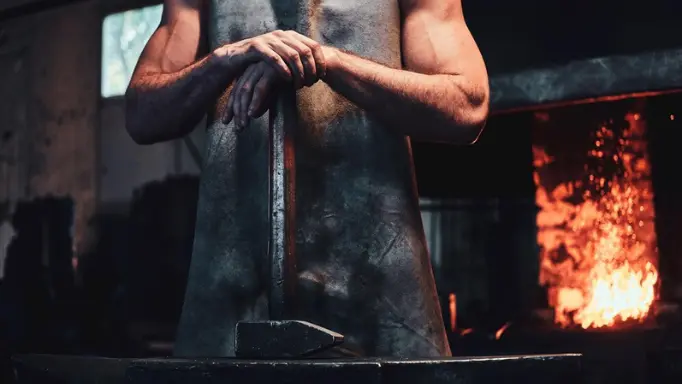
Another important application of hand tools relates to cutting metal sheets which is mainly done by snips and shears. Depending on the style, they can cut smaller or larger pieces.
Lastly, files and rasps are metalworking hand tools used to deliver a smooth finish or for highly delicate tasks. They come in a variety of shapes, such as round or square, and levels of roughness to cover a wide range of applications.
Use of Hand Tools in Metal Working
DIY projects
DIY projects are remarkably various and wide in range. From constructing a treehouse to creating a personalized Christmas card, the options are endless. Many smaller do it yourself tasks can be done without using power tools, that is when the hand tools and their uses become bold.
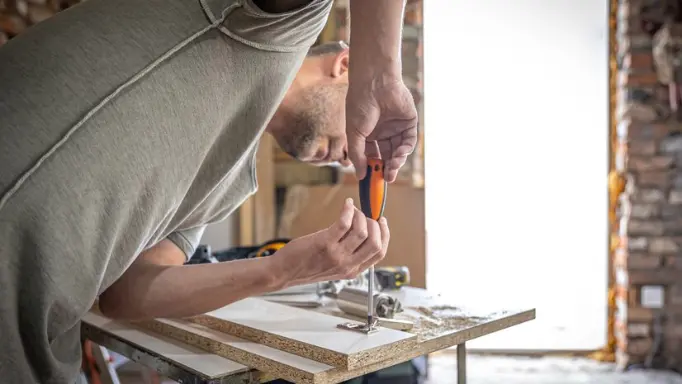
A pair of scissors, for instance, is a versatile tool that can cut and shape various materials with ease. Another extremely useful DIY hand tool is a cutter or utility knife. These knives are mostly used to cut straight and also curved lines in materials such as paper, cardboard and leather.
Screws, bolts and nuts are also used widely in DIY projects which to fasten or tighten them, you need screwdrivers and wrenches. Cutting is yet another one of main activities done in DIY projects, so a proper saw can also be highly practical.
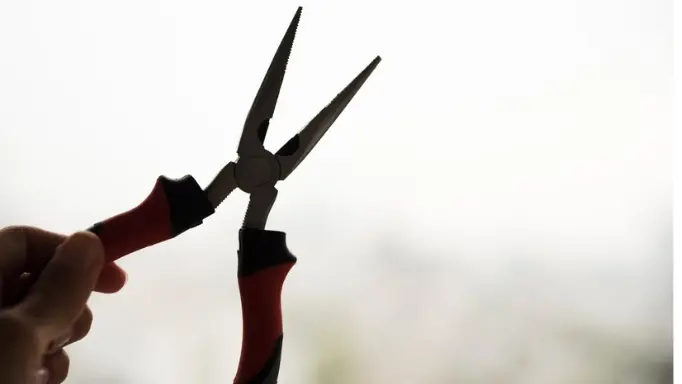
lastly, pliers are great hand tools in DIY projects for tasks such as holding tightly and also bending and compressing various workpieces.
Jewelry Making
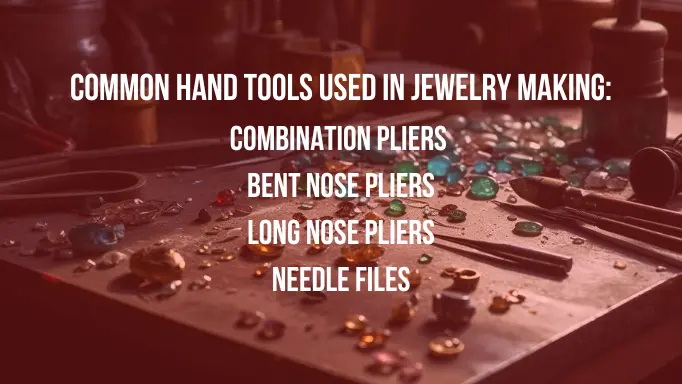
Making jewelry requires a high level of precision. So, you need to use hand tools that are accurate and have high levels of precision. A multitude of pliers is employed to create stunning pieces, including combination, bent nose, and long nose pliers. Additionally, to achieve a polished surface and a flawless finish, needle files are utilized. These files meticulously remove any excess material, leaving behind a shiny and smooth finish.
Electrical Work
The application of hand tools in electrical worlds allows electricians to work with wires with more control and precision.
Among the most indispensable hand tools for electrical work are pliers, offering a wide range of capabilities such as cutting, bending, twisting, gripping, and even straightening wires. From combination pliers to long nose pliers and diagonal cutting pliers, they serve various applications.
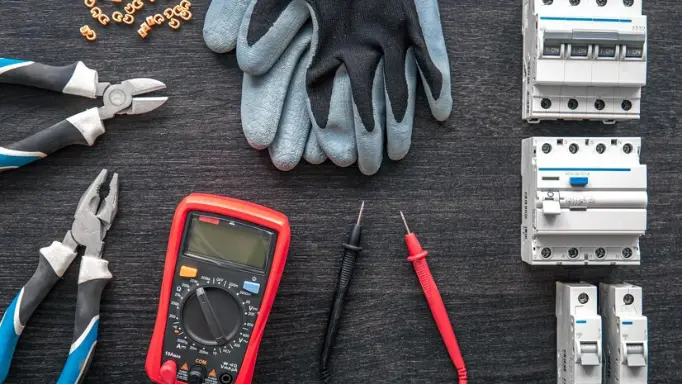
Use of hand tools in jewelry making
Screwdrivers are another essential piece of equipment in an electrician’s toolbox, with many professionals opting for adaptable ones with interchangeable bits to lighten their load.
Measuring tapes and spirit levels also play a crucial role in electrical work. Accurate measurements are essential when dealing with wiring, making a high-quality measuring tape a necessity.
A spirit level proves incredibly practical for installing light fixtures and ensuring precise positioning. Stripping the plastic coating from wires is a regular task in electrical work, as it exposes the copper inside for customized connections. The ideal tool for wire stripping is a wire stripper, available in various types to cater to individual needs.
Use of hand tools in electrical work
Lastly, a non-contact voltage tester or test pen is a must-have hand tool for electricians. These invaluable tools are used to safely check for voltage in wires or devices before starting to work on them, ensuring enhanced safety precautions are taken.
Woodworking And Carpentry
Professional carpenters enjoy a wide array of hand tools uses.
Before the corded and cordless tools took over the woodworking and carpentry industry, they used to do everything by hand. With all the technological advances, the use of hand tools still remains indispensable in modern times.
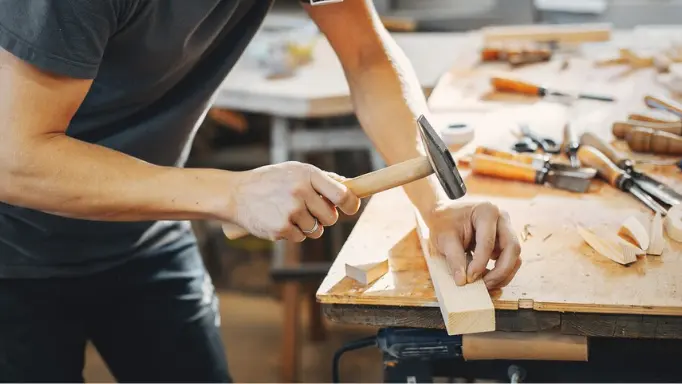
Cutting is a paramount task in woodworking which can be done by using various wood cutting saws made for different applications, from making straight rough cuts to creating delicate curved lines.
Driving and extracting nails are yet another common task in woodworking field for which a claw hammer has proved to be the perfect tool.
chisel is another essential hand tool for woodworking that can be used for carving or clearing out joints and saw cuts.
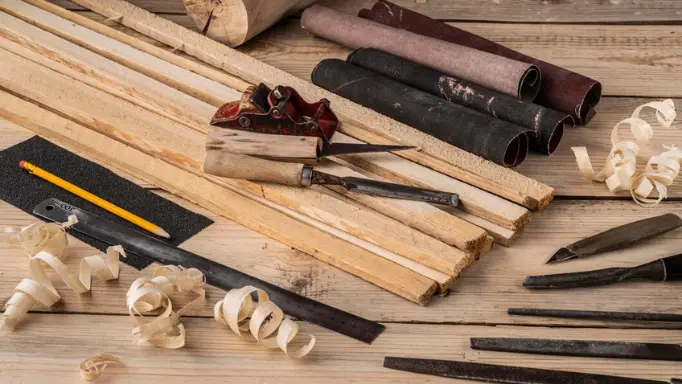
Block plains are also practical tools for smoothing a wooden surface.
Block plains are also practical tools for smoothing a wooden surface. And if you want to hold two pieces of wood in a certain position (for example, to apply glue), you would find clamps extremely beneficial. And finally, to have straight corners and accurate measurements, you need to have a measuring tape and a layout square at hand.
Gardening
Gardening would become a challenging and exhausting task without the use of hand tools. While power tools can handle many gardening tasks, some gardeners still prefer the reliability and versatility of hand tools. One major advantage of gardening hand tools is their affordability when compared to electrically-powered alternatives.
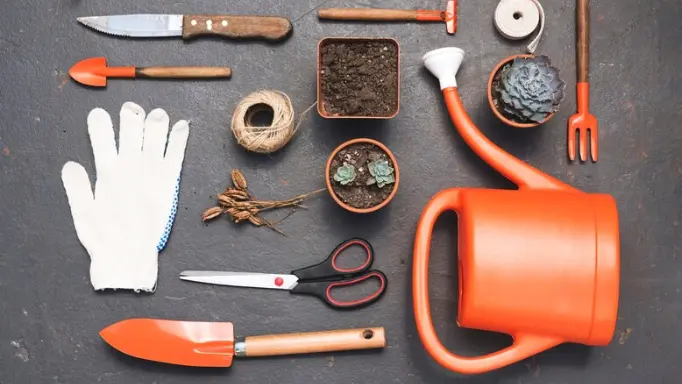
One of the essential hand tools for gardening is a wheelbarrow. Having a wheelbarrow or a garden cart makes working in a large garden or yard a lot easier. You can transport soil and other components effortlessly with a wheelbarrow.
Another essential gardening hand tool for every garden is a digging shovel. To dig a hole in the ground for planting and transporting dirt from the wheelbarrow, a digging shovel is the right tool. They are also great for stirring compost piles and mixing potting soil.

Hand trowels are another vital gardening tool, especially for container gardening. Gardening shears are practical tools for cutting and trimming in any type of gardening. They are ideal for harvesting herbs, vegetables, and fruits.
Loppers, weeders, garden hoes, spades, and leaf rakes are among other hand tools that many professional gardeners find helpful.
Use of hand tools in gardening
Digging
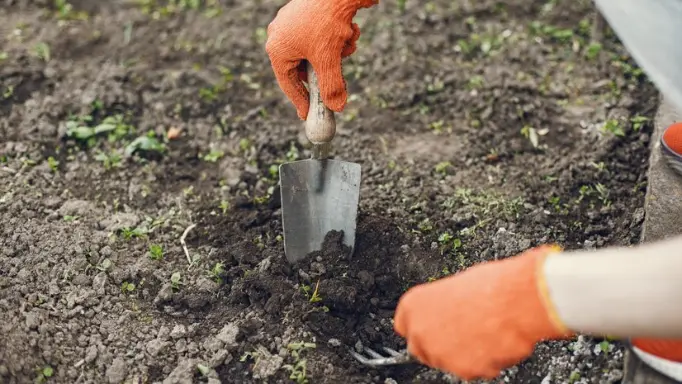
The main hand tool for digging tasks is a digging shovel. It comes in a variety of shapes, sizes and types, among which the pointed models are the most practical; Their sharp, pointy edges allow for easy penetration of the surface, making the digging process significantly more manageable. Furthermore, if you need to transfer soil and dirt, using a wheelbarrow is a highly recommended solution.
Welding

Welding can be really dangerous if you don’t follow safety guidelines. This is why the application of hand tools in this field mainly centers at safety and minimizing the potential hazards.
A set of welding gloves, an auto-darkening welding helmet, safety glasses, earplugs, and protective welding clothing are indispensable for ensuring safety in welding operations. Because all these safety gears can protect you from sparks, heat, and radiation.
For effectively chipping and removing welding slag and spatter from the workpiece, a chipping hammer has proved to be helpful. It allows for efficient cleaning and preparation of the surface. Furthermore, the use of a wire brush is highly recommended for thorough debris removal both before and after the welding process, ensuring optimal weld quality and cleanliness.
Manufacturing
Depending on the type of product being manufactured, different types of hand tools are needed. But in many factories and manufacturing shops, you can always find various kinds of wrenches, spanners and pliers. Screwdrivers are also essential as there will always be a screw that needs to be tightened or loosened!
Use of hand tools in manufacturing
Demolition
When talking about demolition jobs, the first hand tool that comes to mind is a hammer. There are wide range of hammers available for demolishing tasks such as ball peen hammer, club hammer and sledge hammer.
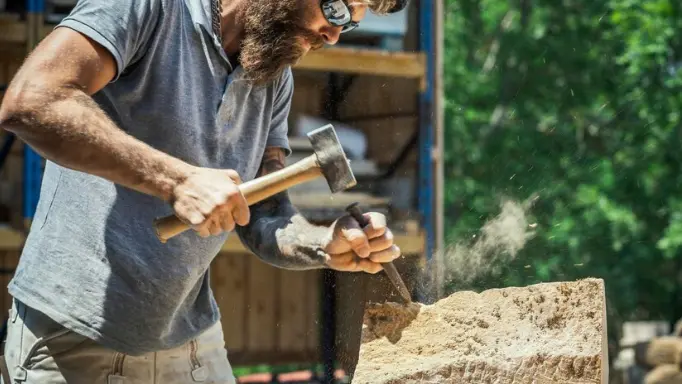
To make the demolition operation more effective, effortless and easier you should use chisels alongside hammers.
Use of hand tools in demolition
Repairing Cars
Mechanics usually use a wide range of hand tools when repairing a car, the most important of which are wrenches. A car has a lot of nuts and bolts. you will definitely need a wrench to fasten and loosen them.

Expansion bars, ratchets, screwdrivers, hammers and pliers are also regular tools in car repairing.
Use of hand tools in repairing cars
Now that you know everything about different hand tools and their uses in various fields, let’s take a closer look at the right way to use these valuable and handy assistants:
Proper and safe use of hand tools
Before the advent of electricity and power tools, hand tools were the primary means of accomplishing a wide range of tasks, including making holes in walls and cutting wood. Despite the availability of various power tools today, certain tasks still require the use of hand tools. To maximize the utility and lifespan of these tools, it is crucial to understand their proper usage.
First and foremost, maintaining your hand tools in good condition is essential. Regular maintenance and safe storage practices are key to achieving this. By frequently inspecting and maintaining your tools, you ensure their optimal performance.

Secondly, it is important to select the appropriate tool for each task. While it may be tempting to use a flat head screwdriver to open a Philips screw in a pinch, doing so regularly can damage both the tool and the screw. Using the right tool for the job not only preserves the durability of the tool but also makes your work significantly easier.
Furthermore, it is crucial to thoroughly inspect each hand tool before use to identify any damages. If any damage is detected, refrain from using the tool. Operating a damaged tool can pose risks to both the operator and the workpiece. Additionally, always follow the manufacturer’s instructions when operating the tool, as they possess the expertise on how the tool functions optimally.
Lastly, prioritize your safety by utilizing proper protective gear. Wearing the appropriate protective equipment ensures your well-being during tool usage.
FAQs:
What are 5 uses of hand tools?
Hand tools can be used for cutting wires or wood, tightening and loosening fasteners, digging, shaping metal and measuring.
What is the most used hand tool?
Though it depends on the field in question and the task at hand but, generally speaking, Screwdrivers are the most used hand tools.

Ida
16 November 2020
